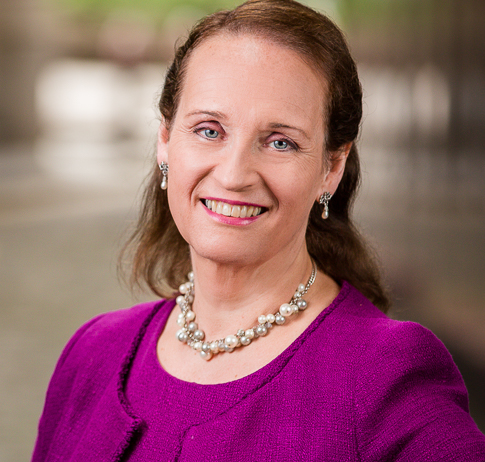Probate is the legal process whereby the estate of a person who has died is dealt with. If the person has made a Will this usually appoints people to be executors to administer the estate. If there is no will then next of kin will be appointed by the court as administrators instead. We refer to executors and administrators as personal representatives (‘PR’s) in this guidance.
The first step PR’s need to take is to apply for formal authority to deal with the assets of the estate. We refer to this authority as ‘the Grant’ in this guidance. The PR’s will then need to identify the assets and collect them in, pay any debts, calculate and pay to HMRC any inheritance tax (IHT) which may be due and then distribute the estate between the beneficiaries. The beneficiaries will be determined by the Will, if there is one, or the Intestacy Rules if there is not. There are many other things which PR’s have to do to in administering an estate. Our note on the Administration of Estates explains more about what is involved in the administration of estates.
Our team of probate specialists can advise and help PR’s and it has particular expertise in high value estates and IHT matters. It comprises probate specialists who spend the majority of their working lives on probate matters only. We specialise in complex matters including international matters and issues such as businesses and foreign assets. This guidance sets out the service we offer and how we charge for it.
Our team
Our team comprises two partners and four other lawyers and paralegals.
All cases will be managed by one of the partners or special counsel who will work with other members of our team with the appropriate level of experience. Click on an individual’s name to view their profile.
PARTNERS
Dora Clarke (qualified as a solicitor in 1985)
Julia Abrey (qualified as a solicitor in 1987)
OTHER TEAM MEMBERS
Christopher King – Special Counsel (qualified as a solicitor in 1990)
Elizabeth Lane – Associate (qualified as solicitor in 2018)
Charlotte Kipping – Trainee Legal Executive (Trainee Legal Executive as of 2020)
The team is also assisted by trainee solicitors who will spend six months working with the team. Their overall experience of legal practice will depend on what stage of their two-year training period they have reached and any prior experience gained before they started their training contract.

Dora Clarke
Partner | London

Julia Abrey
Consultant | London

Christopher King
Special counsel | London

Elizabeth Lane
Associate | London
Our services
Our service will usually involve the following steps, although some may not be required in every case:
- Advising on the terms and construction of the Will and any codicils, their legal and tax implications and the role, duties and responsibilities of the PR’s. Alternatively, our advice will be on the application of the Intestacy Rules if there is no Will and who is entitled to apply for authority to administer the estate
- Giving advice on the identification and valuation of the assets and liabilities of the estate. Valuations of assets may incur separate valuation fees - for example from a stockbroker or estate agent
- Issuing notices enquiring about any potential claims against the estate from unknown creditors
- Advising on IHT compliance matters and drafting the IHT return
- Drafting what is called the PR’s oath and any other relevant papers leading up to the application for the Grant which may include attending a meeting with the PRs to review and sign up the documentation
- Lodging the IHT return with HMRC for preliminary checking that the tax is calculated correctly or that there seems to be no tax to pay and dealing with any issues arising
- Calculating, agreeing how to fund and paying any IHT falling due on the application for the Grant and advising the PR’s if any IHT can be postponed and paid later
- Lodging the Grant application with the Probate Registry and answering any questions in relation to the application which it may have
- Once the Grant has been issued, registering it with asset holders as appropriate
- Collecting in the assets of the estate and paying debts – both those which existed at death and those arising later such as ongoing property expenses
- Carrying out searches to check that none of the beneficiaries of the estate is bankrupt
- Arranging payment of any cash legacies and advising on any legacies in the Will
- Co-ordinating any negotiations needed with HMRC for IHT purposes over the valuations of assets and any reliefs and exemptions against IHT such as the relevance of any trusts or lifetime gifts
- Preparing estate accounts showing all the financial transactions in the estate
- Advising PR’s on their responsibilities regarding income tax and capital gains tax both for the person who has died up to the date of their death and for the PR’s while they are administering the estate. We can assist with the preparation of returns either by doing this work ourselves or by using the services of an accountant in which case additional charges will arise.
- Arranging for distributions to be made to the beneficiaries or advise the PR’s on any trust which the terms of the Will may set up
- Liaising with and reporting to PR’s and the beneficiaries of the estate as appropriate
- Providing the beneficiaries with details of their share of any income the assets of the estate have earned which they may need to report on their personal tax returns.
Our charges and timescales
Our basic fees for work done before a Grant is obtained (points 1 to 8 above) are calculated by reference to the gross value of the estate excluding any debts.
Our basic fees for work done after a Grant is obtained (points 9 to 18 above) are also calculated by reference to the gross value of the estate excluding any debts.
Not all estates will need all the services set out in points 1 to 18 above. For example, the Will may not include any legacies.
In addition to the basic fee, we charge a further percentage of the total basic fee. The percentage applied will depend on how the estate passes to the beneficiaries and who they are. The percentage is higher where assets are held in a trust rather than being divided between one or more individuals.
Some estates may not need to pay IHT because they are small or because the assets or the beneficiaries who inherit can benefit from a tax exemption or relief. If no IHT is payable, the administration of the estate is usually easier and our fees may lower than those indicated in the term. This is something we can discuss with the PR’s. If other complicating factors are relevant, additional charges may still be payable.
If a partner of this firm or our trust corporation, WITCo, is appointed as a PR an additional fee of £750 will be charged.
Click here to open a table setting illustrating how our basic and percentage charges are calculated.
It can be hard to work out how much work will be involved in administering an estate – and what needs to be done determines how much our team will charge for doing it. In the early days after a death there may be a lack of information as to what the assets and debts of the estate are and it may take time for this to become clear. Generally, however, the larger and more complex the estate, the more work is required to administer it. Some examples of complexities might be:
- assets which are large or numerous such as multiple bank and building society accounts
- assets in a form which takes extra time to deal with- for example shareholdings in paper form
- assets which need special treatment, eg where the person who has died has an interest in a farm or a business
- estates which divide between a large number of beneficiaries
- complexities in calculating how much IHT is due, eg where reliefs and exemptions against the tax can be claimed, there are trusts involved or the person who has died has made gifts in their lifetime
- where the assets of the estate do not seem to be big enough to pay debts
We will therefore make an additional charge if particular factors are relevant to the estate, including:
- business or agricultural properties
- property other than residential properties
- properties which need administration, such as arranging clearance
- assets outside England and Wales
- life insurance and pension policies
- shares held in the name of the person who has died rather than in a corporate nominee
- complex issues in relation to the calculation of IHT such as lifetime gifts, agricultural and business relief and heritage property
- issues relating to pre-death income tax
- trusts either relating to the estate or arising under the Will or intestacy
- any contentious issues arising in relation to the estate
- any other unforeseen complications
Our additional charge will be based on the hourly rate of the members of the probate team who work on the matter and the number of hours they spend.
Team member's seniority & Hourly rate as of 1 July XXXX:
- between £675 and £715 for Partners
- £565 for Special Counsel
- £320 for Associates
- £210 for Trust & Probate Administrators
- £200 for Trainee Legal Executive
- between £200 and £235 for Trainee Solicitors
Please note that these rates do not include VAT and disbursements. Please also note that our hourly rates may be varied on 1 July of each year. VAT is applied at the rate of 20% on our fees and, where applicable, disbursements.
We will provide the PR’s with an estimate of what any additional charges are likely to will be and will update them on this likely cost regularly during the administration. We will be able to provide a more accurate estimate when we have more information about the nature of any additional work which will be required.
Our fees for dealing with the administration of an estate do not cover any additional work that will be necessary for a house has to be sold or transferred. Conveyancing fees will be charged separately. This link provides further details about our services and charges for the transfer of residential property.
Various additional expenses will also be incurred. These are known as disbursements and will be payable to third parties. Some that will usually be incurred are as follows:
- Probate application fee of £155 plus £1 per copy grant
- £5 per executor for the swearing of the oath plus £2 per executor for each Will and codicil exhibited
- £1 per additional copies of the grant – we normally need between 10 and 20 per estate
- Bankruptcy search – £1 per beneficiary
- £84.60 for publicising in London Gazette and a range of prices for local/national newspapers up to protect the estate against unexpected claims
The charges above do not include taxes that may be payable by an estate, the person who has died and their PR’s or beneficiaries such as:
- IHT – see here for details on how this is calculated. This is a complicated tax at it can take a long time to agree the amount payable with HMRC.
- Income Tax
- Capital Gains Tax
We will need further information to be able to advise up whether these taxes are payable and, if so, how much.
Timescales
On average, most estates are administered within one year of death. Typically obtaining the Grant takes around 12 to 16 weeks. Collecting in assets and agreeing and paying debts and IHT before distribution involves the remainder of the year. The more complex the estate the longer the administration will take.
Our related services
Get in touch
Our website will give you a flavour of the advice we provide - if you would like to talk to us for more information, please contact our client services team who will be happy to assist.